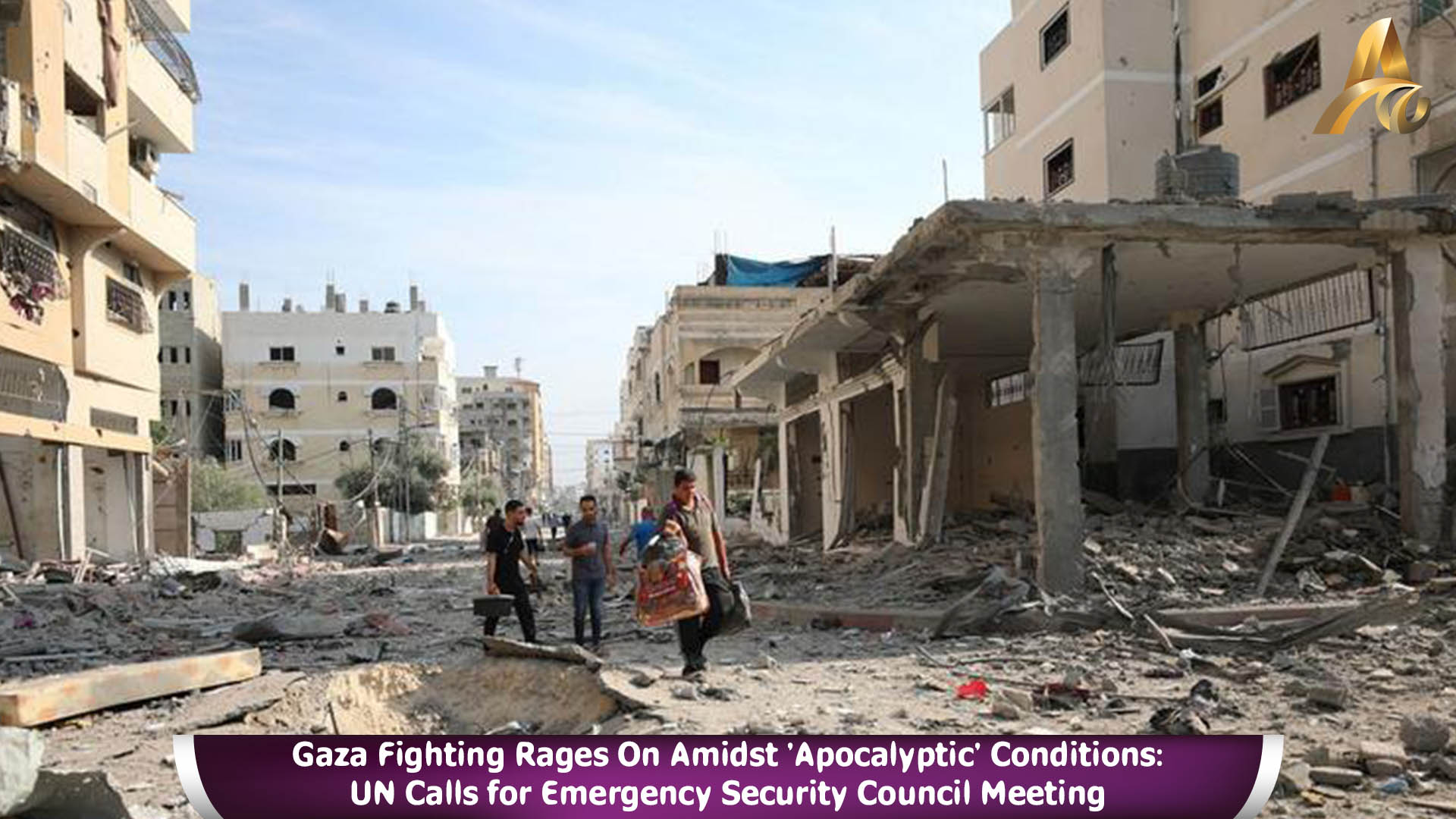
Gaza Fighting Rages On Amidst 'Apocalyptic' Conditions: UN Calls for Emergency Security Council Meeting
A collective plea from 27 aid organizations, including UN agencies and their partners, demands an immediate cessation of hostilities in Gaza. The joint statement emphasizes the dire conditions in Gaza as some of the worst witnessed, urging an end to the conflict.
Simultaneously, Ecuador, holding the presidency of the Security Council, announced an emergency meeting to address the Palestine-Israel crisis. Scheduled for 10 AM local time in New York on Friday, the meeting responds to UN Chief António Guterres' call for urgent action using the rare Chapter 99 tool.
Guterres urged the 15-member Council to press for a humanitarian ceasefire, emphasizing the potentially irreversible implications for Palestinians and the region's peace and security. Representatives from the Arab Group of nations and the Organisation of Islamic Cooperation echoed this call, urging action towards a ceasefire in Gaza.
Israeli troops reportedly entered the southern Gaza town of Khan Younis on Thursday, where displaced people sought refuge. The intense Israeli bombardment and rocket firing by Palestinian armed groups continue, resulting in over 100 reported deaths on Wednesday in Jabalia refugee camp.
The humanitarian situation is dire, with almost no one in Gaza having enough food. UN agencies, including the World Food Programme (WFP) and UN Children’s Fund (UNICEF), describe conditions as critical, emphasizing the lack of water, sanitation, and food, with the constant threat of bombings.
UN Emergency Relief Chief Martin Griffiths stated that the humanitarian plan in southern Gaza is "in tatters," emphasizing the urgency to silence the guns. Aid deliveries have become erratic and unsustainable, posing severe challenges to providing essential support.
The UN health agency, WHO, supports Guterres' call, stating that Gaza's health system is on its knees. WHO documented 212 attacks on healthcare facilities, affecting 56 facilities and 59 ambulances. Only 14 out of Gaza's 36 hospitals are partially operational.
The Kamal Adwan hospital in Jabalia has ceased functioning, depriving thousands of essential lifesaving care. UN-appointed independent expert Tlaleng Mofokeng condemned Israel's "unrelenting war" on Gaza's health system, emphasizing the urgent need to emerge from the depths of the crisis.
Ongoing hostilities, telecommunications blackouts, and access challenges have hindered UN aid distributions. Rafah was the only governorate where aid distributions occurred, with a significant reduction compared to the daily average during the humanitarian pause.
Evacuations in Khan Younis have strained resources, with UNRWA providing support to displaced individuals. The situation is dire, with UN agencies addressing what they term a "catastrophic hunger crisis" across the Strip.
The collective call from aid organizations underscores the urgency of a ceasefire to prevent further humanitarian catastrophe in Gaza. The international community awaits deliberations in the emergency Security Council meeting to address the escalating crisis.






















